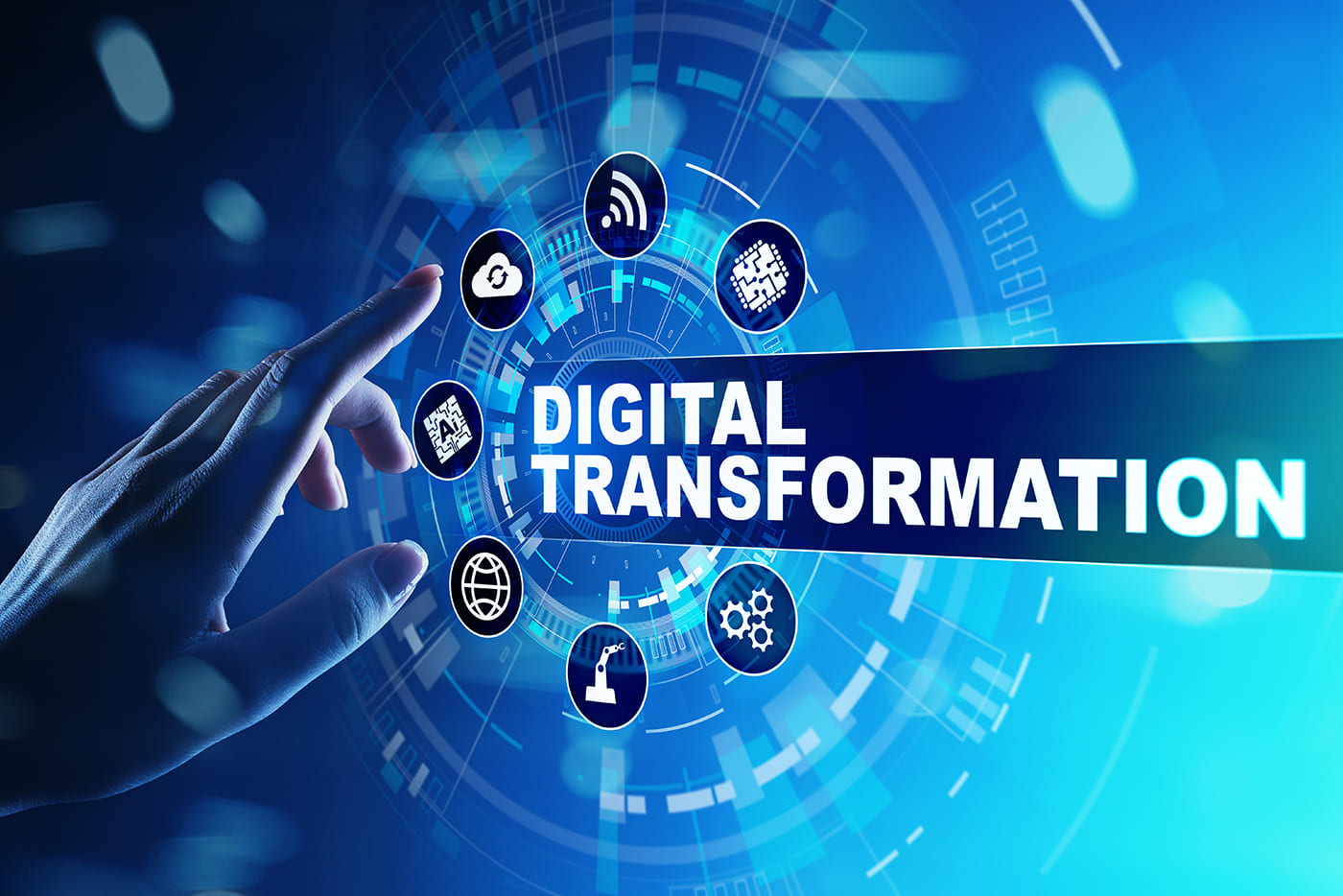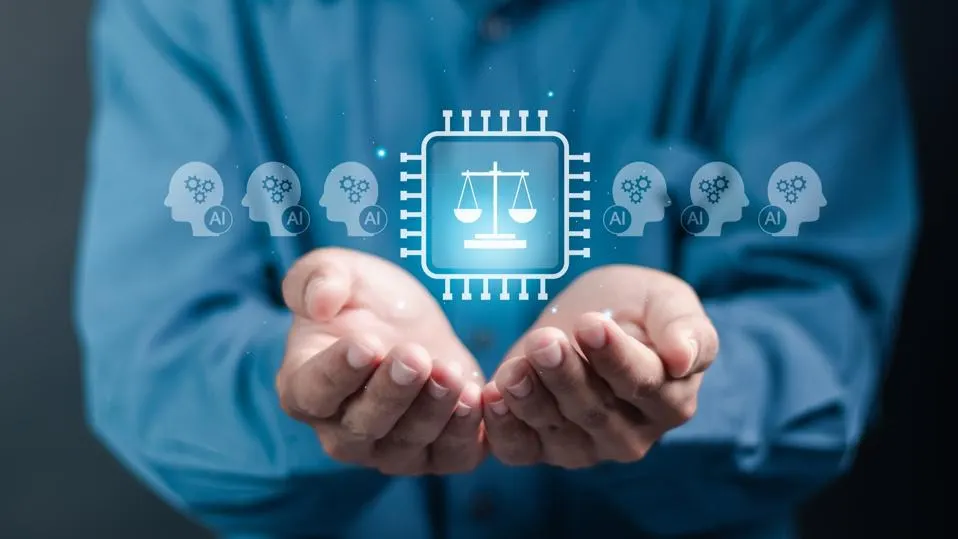9 Examples Of Brands That Get Digital Transformation Right
10 March 2022
It’s often said that in order to succeed in today’s business environment, every company has to become a technology company. This is because how well a company is able to adapt to the increasingly digital world we live in is increasingly the difference between success and failure. And some companies have managed this transition better than others.
In every industry, there is a narrative of upstart “disruptors” emerging to take market share from the incumbent giants of the analog days. However, there are also plenty of examples of iconic brands that existed long before the internet age that have been able to successfully harness opportunities offered by the online world, data, AI, and other transformative trends.
Here’s a look at some of those that have most effectively managed that transformation, retaining their status as market leaders by leveraging technology as effectively as any “digital native” organization.

Starbucks
Starbucks has existed since 1971 – long before anyone knew that data-driven mobile ordering apps would be key to revolutionizing the global café industry. The company has emerged as a winner in the digital era by consistently focusing on innovation, such as its AI-powered personalized product offerings and discounts, all managed through its mobile app-based ordering and loyalty program. While many similar businesses suffered greatly due to the global Covid-19 pandemic and its widespread lockdowns and closures, Starbucks was able to ramp up its delivery and drive-through customer offerings. The result was that its revenues dropped by just 5% during the first three months of the pandemic.
L'Oreal
Cosmetics giant L’Oreal has put digital transformation right at the front of their agenda, stating that it is a "genuine revolution, and it is completely transforming our ways of living, consuming, communicating and working."
The brand offers augmented reality solutions that let customers try out products in their homes via their smartphone cameras. Through a partnership with Facebook, they launched the ModiFace app, which integrates this functionality directly into the social media platform. It has extended this tech-first approach to offline retail, too, by installing "magic mirror" devices in stores, bringing AR and VR to the bricks ‘n’ mortar shopping experience. L’Oreal is also a keen early adopter of the metaverse trend, creating virtual spaces for customers online, and has created and sold artwork inspired by its product range as non-fungible tokens (NFTs).
Burberry
Burberry's longstanding digital-first strategy left it well-positioned to react to the changes brought about by the Covid-19 pandemic. The luxury clothing and accessories brand has always focused its digital strategy on driving improved customer experiences, and this includes launching "virtual stores", where customers can get hands-on with digital likenesses of its products as well as receive personal one-to-one attention from virtual sales associates, with expert product knowledge, through scheduled video calls. The brand held virtual events within its online stores to enhance the sense of occasion conveyed during visits. It also created AR tools that allowed shoppers to visualize products in their own homes and environments.
Glenfiddich
Scottish whisky distillers Glenfiddich has embraced the blockchain trend of non-fungible tokens (NFT), offering collectors' editions of some of its high-end whiskies complete with their own digital tokens. The idea here was to introduce whisky investing and collectibles to new, younger audiences. It sold 15 limited-edition bottles of 46-year-old Armagnac cask-finished single malt, with their own NFTs stored on the Ethereum blockchain, for $18,000 each. Attaching NFTs to luxury and investment products helps to ensure their provenance, as the bottle remains in the custody of the distiller until the buyer wants to drink or sell it – at which point the NFT itself is "burnt" (destroyed).
Disney
With its movie and television businesses facing disruption from services like Netflix and Amazon Prime, Disney adapted by launching its own streaming entertainment channels. This enabled it to quickly capitalize on the love that many still have for its iconic franchises like Pixar and Star Wars while establishing its own share of the streaming audience. It has also built digital transformation into its other businesses, such as theme parks – where visitor data is monitored through its RFID-enabled Magic wristbands that act as admission tickets, hotel keys, and payment methods. It heavily relies on data and analytics for everything from determining the placement of drinks vendors to alleviating congestion in order to ensure visitors have a magical experience.
Walmart
Traditional retailers have certainly been challenged by the likes of Amazon since online shopping became a reality. But far from taking it lying down, the most successful ones have responded by adopting their own digital initiatives, often inspired by the innovations first developed for e-commerce. Walmart has majorly invested in transitioning into a data-driven business, with a firm emphasis on analytics. Big data and artificial intelligence (AI) are used for everything from tracking customer behavior and understanding the changing trends of shoppers to managing its supply chain and ensuring the right products are in the right place at the right time. The company built what it says is the world’s largest private data cloud – capable of ingesting 2.5 petabytes of data every hour – and uses this to inform all of its business strategies and decisions.
McDonald's
McDonald pioneered the fast-food restaurant concept and the drive-through, and that spirit of innovation has continued to be put to work in the digital age. Thanks to this, it is also among the global brands that weathered the disruption of the global pandemic relatively well. In 2014 it implemented a dedicated Digital Innovation Team, committed to three general principles – reducing customer friction, “unbundling” the restaurant experience, and building delivery capabilities. To this end, the chain has developed capabilities such as taking orders through automated voice bots and using AI to predict customer orders at the drive-through window by scanning car registration plates.
Dominos
Dominos has invested in a heavily multi-channel approach to customer experience – letting customers order pizza using just about any device or service you can name. While many food delivery companies launched mobile apps, Dominos made sure that you can order pizza directly from televisions, social media platforms, and home assistants like Alexa and Siri. It has worked to streamline the customer experience to the point that it offers "zero-click" ordering, all in the name of reducing customer friction to the bare minimum. As their chief data officer, Dennis Maloney, put it, "If you're a loyal customer, you don't have to do basically anything to get a pizza!" It has also developed the concept of "hotspots," so pizza fans can get deliveries even when they aren't at home by having them brought to local landmarks. Pizzas can also be delivered by robots – such as the autonomous Nuro vehicles being used for deliveries in Houston, Texas.
Nike
Sportswear giant Nike has a sophisticated digital strategy that in recent years has focused on regaining control of its own retail operations in order to improve its ability to analyze customer data. Rather than diluting its brand by selling wholesale to a large number of retailers, it determined that a better customer experience could be delivered by building out its own direct sales channels and working with a selected number of close partners. This has allowed it to vastly increase the amount of data it can collect from customers – in fact, at just one Los Angeles store, this strategy had the effect of increasing the number of sign-ups to its Nike Plus program by a factor of six. It's also another company that's branching out into the world of metaverse and NFTs – recently having announced the acquisition of RTFKT Studios, a company that creates virtual clothing and footwear.
Related Articles
Will AI Solve The World’s Inequality Problem – Or Make It Worse?
We are standing on the cusp of a new technological revolution. AI is increasingly permeating every aspect of our lives, with intelligent machines transforming the way we live and work.[...]
How You Become Irreplaceable In The Age Of AI
In a world where artificial intelligence is rapidly advancing, many of us are left wondering: Will AI take our jobs?[...]
Why Apple Intelligence Sets A New Gold Standard For AI Privacy
In the rapidly evolving world of artificial intelligence, privacy concerns have become a hot-button issue.[...]
Can Your Device Run Apple Intelligence? What You Need To Know
Apple's announcement of Apple Intelligence has sent waves of excitement through the tech world.[...]
10 Amazing Things You Can Do With Apple Intelligence On Your IPhone
Apple Intelligence is poised to revolutionize the iPhone experience, offering a suite of AI-powered tools that promise to make your digital life easier, more productive, and more creative.[...]
Agentic AI: The Next Big Breakthrough That’s Transforming Business And Technology
The world of artificial intelligence is evolving at a breakneck pace, and just when you thought you'd wrapped your head around generative AI, along comes another game-changing concept: agentic AI.[...]
Sign up to Stay in Touch!
Bernard Marr is a world-renowned futurist, influencer and thought leader in the fields of business and technology, with a passion for using technology for the good of humanity.
He is a best-selling author of over 20 books, writes a regular column for Forbes and advises and coaches many of the world’s best-known organisations.
He has a combined following of 4 million people across his social media channels and newsletters and was ranked by LinkedIn as one of the top 5 business influencers in the world.
Bernard’s latest book is ‘Generative AI in Practice’.










Social Media